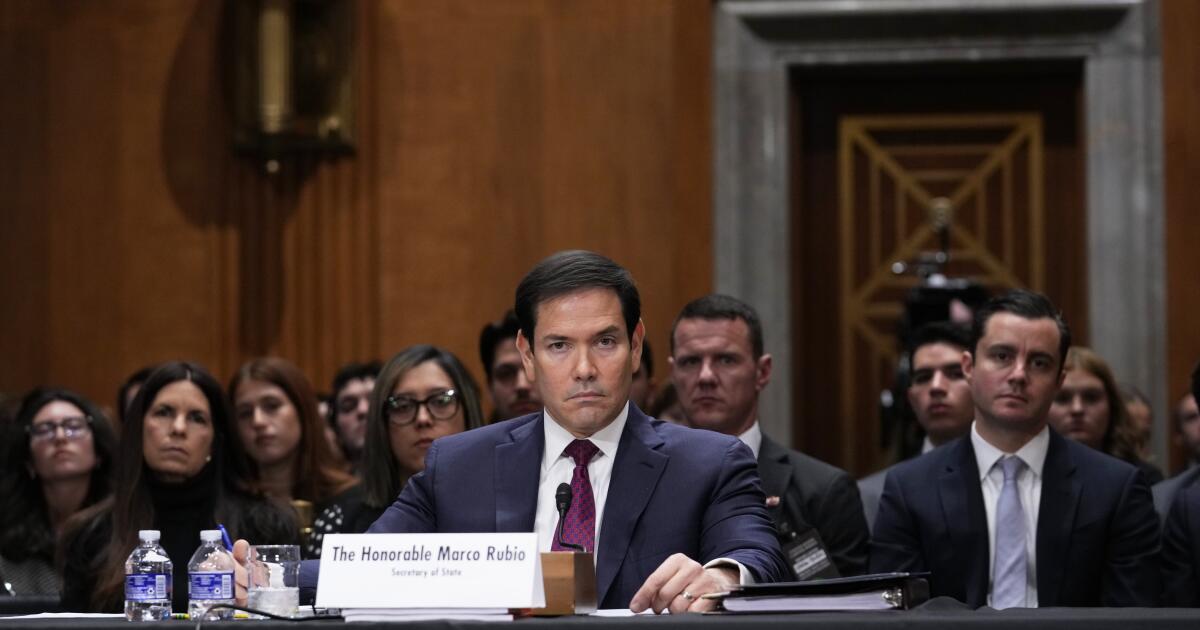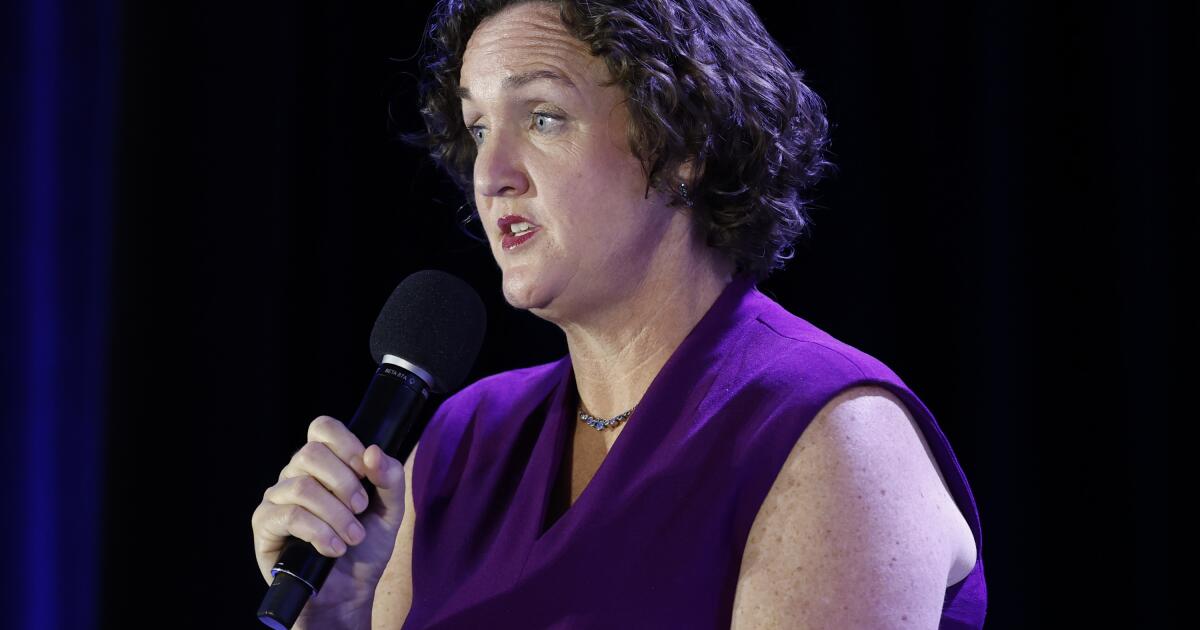Democrats Crockett, Talarico align on much in Texas Senate debate. Trump impeachment is different
Democrats Jasmine Crockett and James Talarico differed more on style than substance in their first debate for U.S. Senate in heavily Republican Texas, though they distinguished themselves somewhat on the future of ICE and impeachment of President Trump.
Crockett, an outspoken second-term U.S. House member, and Talarico, a more soft-spoken four-term state representative, generally echoed each other on economic issues, healthcare and taxes.
Both called for a “fighter” in the role. Crockett, who is Black, said she was better positioned to attract disaffected Black voters, while Talarico, a Presbyterian seminarian who often discusses his Christian faith, suggested he could net rural voters unhappy with Republicans.
The hourlong discussion, before hundreds of labor union members and their families at the Texas AFL-CIO political convention, served as an early preview for themes Democrats hoping to overtake the Republican majority in the Senate in November are likely to stress throughout the midterm campaign.
The nominee chosen in the March 3 primary will face the winner of a Republican contest between four-term Sen. John Cornyn, Rep. Wesley Hunt and state Atty. Gen. Ken Paxton.
Impeachment of Trump
Crockett said she would support impeachment proceedings against Trump, beginning with investigating his use of tariffs. Crockett has supported impeachment measures in the House.
“I think that there is more than enough to impeach Donald Trump,” Crockett said. “Ultimately, do I think we should go through the formal process? Absolutely.”
Talarico stopped short of suggesting whether he would support impeachment proceedings, except to say, “I think the administration has certainly committed impeachable offenses.”
Instead, Talarico said he would, as a senator, weigh any evidence presented during an impeachment trial fairly, given that the Senate does not bring impeachment charges but votes to convict or acquit. “I’m not going to articulate articles of impeachment here at a political debate,” he said.
Both candidates address ICE funding
Both candidates condemned the shooting of a man in Minneapolis by federal immigration officers Saturday, and ICE’s heavy presence in the city, though Talarico was more adamant about cutting funding to the agency.
Both said they support bringing impeachment proceedings against Department of Homeland Security Secretary Kristi Noem, under whom ICE serves. But Crockett was less specific about cutting their funding.
“We absolutely have to clean house,” she said. “Whatever that looks like, I’m willing to do it.”
Talarcio more specifically said of ICE funding, “We should take that money back and put it in our communities where it belongs.”
Differences of style
While both candidates said the position requires “a fighter,” Crockett cast herself as a high-profile adversarial figure while Talarico said he had been confronting Republicans in the Texas Statehouse.
“I am here to fight the system, the system that is holding so many of us down,” said Crockett, a 44-year-old Dallas civil rights lawyer and former public defender who has built her national profile with a candid style marked by viral moments.
“It is about tapping into the rawness of this moment,” Crockett said of what Democratic primary voters are seeking.
Talarico, a former public school teacher, cast himself as someone who had been actively opposing the Republican-controlled state legislature.
He pointed to his opposition to Texas’ Republican Gov. Greg Abbott’s agenda in Austin, notably on tax credits for Texans who choose private schools for their children.
“We need a proven fighter for our schools, for our values, for our constituents in the halls of power,” he said. “I think we need a teacher in the United States Senate.”
Taxes, healthcare and economy
Crockett and Talarico generally aligned on domestic policy, including support for higher taxes.
Both candidates proposed ending tariffs as a way of lowering consumer prices.
“We have to roll back these tariffs,” Crockett said. “It’s hurting farmers and ranchers who are filing a record number of bankruptcies.”
Talarico was more direct about his support for higher taxes on the nation’s wealthiest earners.
“What I will not compromise on is making sure these billionaires pay for all that they have gotten from this country,” Talarico said, though he stopped short of suggesting how much he would seek to raise taxes.
Crockett voted last summer against the tax-cut and spending-reduction bill passed by the Republican-controlled Congress and signed by Trump. The bill extended tax cuts enacted during Trump’s first administration.
She also said she supported Medicare for all, a government-backed health insurance plan for all Americans.
“If we truly believe that everyone should have access to healthcare, we can make that a reality with bold leadership,” she said.
Talarico supports the concept, and spoke favorably about universal basic income, without suggesting he would specifically support it in the Senate.
“I’m very encouraged by some pilot programs of universal basic income,” he said.
Beaumont writes for the Associated Press.






















